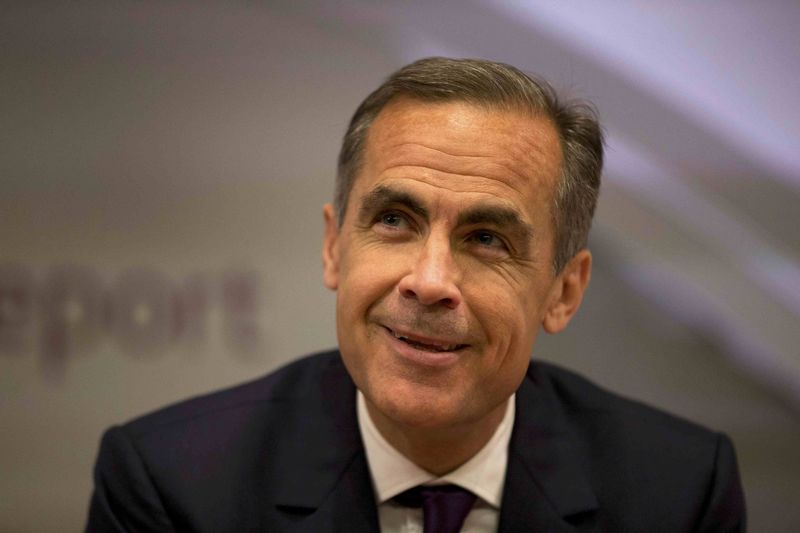Investing.com’s stocks of the week
Investing.com – Bank of England (BoE) governor Mark Carney said on Wednesday that the U.K.’s central bank had made the right decision with regard to its contingency plans in light of the U.K.’s June 23 decision to leave the European Union (EU) and attributed part of the bounce back in the British economy to the “extraordinary measures” taken, while insisting that all of the current easing measures could be increased if necessary.
Testifying before the U.K.’s Treasury Select Committee Hearing on the August Inflation Report, Carney expressed his opinion that the “extraordinary measures we took in advance helped allow the economy to adjust” in the wake of June 23 EU referendum.
Throughout the proceedings, Carney indicated that the “bounce back” in the economy, according to current data, would be “slightly stronger” than the BoE’s original forecast of 0.1% for the third and fourth quarter.
However, he also noted that the growth was “growth is running about half as much as it was before the referendum.”
“I certainly welcome the signs of stabilization in the economy,” Carney said.
The BoE governor also insisted that there was some recovery in investment from early declines and stated that, without the stimulus, unemployment would have been higher.
Carney noted that the “quite extraordinary measures” taken ahead of the vote in regard to arrangements with providing liquidity for banks helped to ensure that “what was a surprise to financial markets passed smoothly in terms of the functioning” of the system.
Despite Carney’s positive read to the economy, he reiterated that absolutely all of the easing measures implemented by the BoE have further room for expansion and that the central bank will be prepared to adjust policy as necessary.
At 10:58AM ET (14:58 GMT), GBP/USD traded at 1.3344 compared to 1.3370 before the start of the hearings.
EUR/GBP moved to 0.8422 from the previous 0.8408.
GBP/JPY traded at 135.76 compared to 135.66 earlier.
Of note, also affecting currency trade was the fact that during the hearings, data showed that number of job openings in the U.S. surged to an all-time high in July and that the British economy slowed in the three months to August, with a “significant chance” of recession next year, according to the National Institute of Economic and Social Research.
